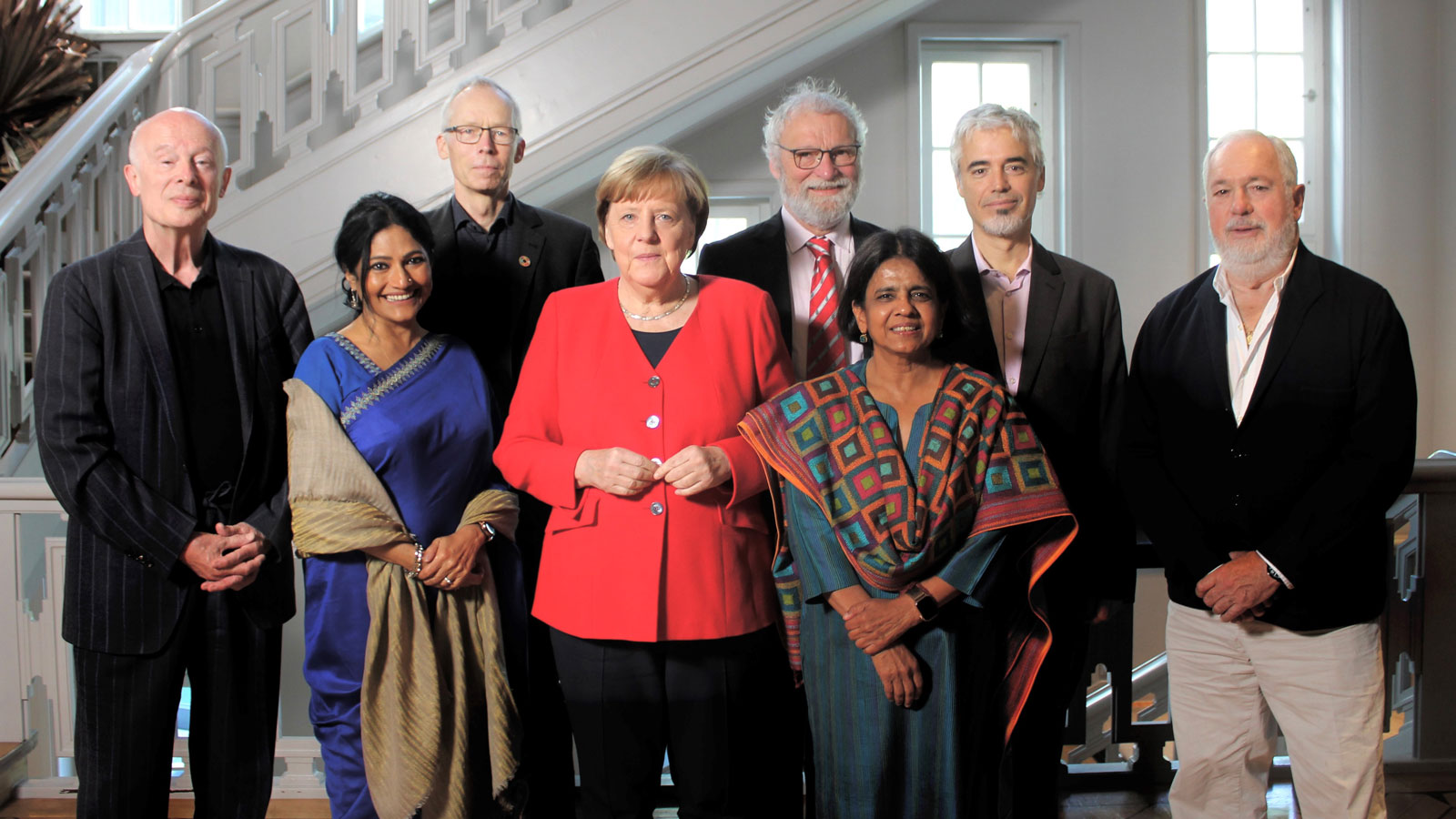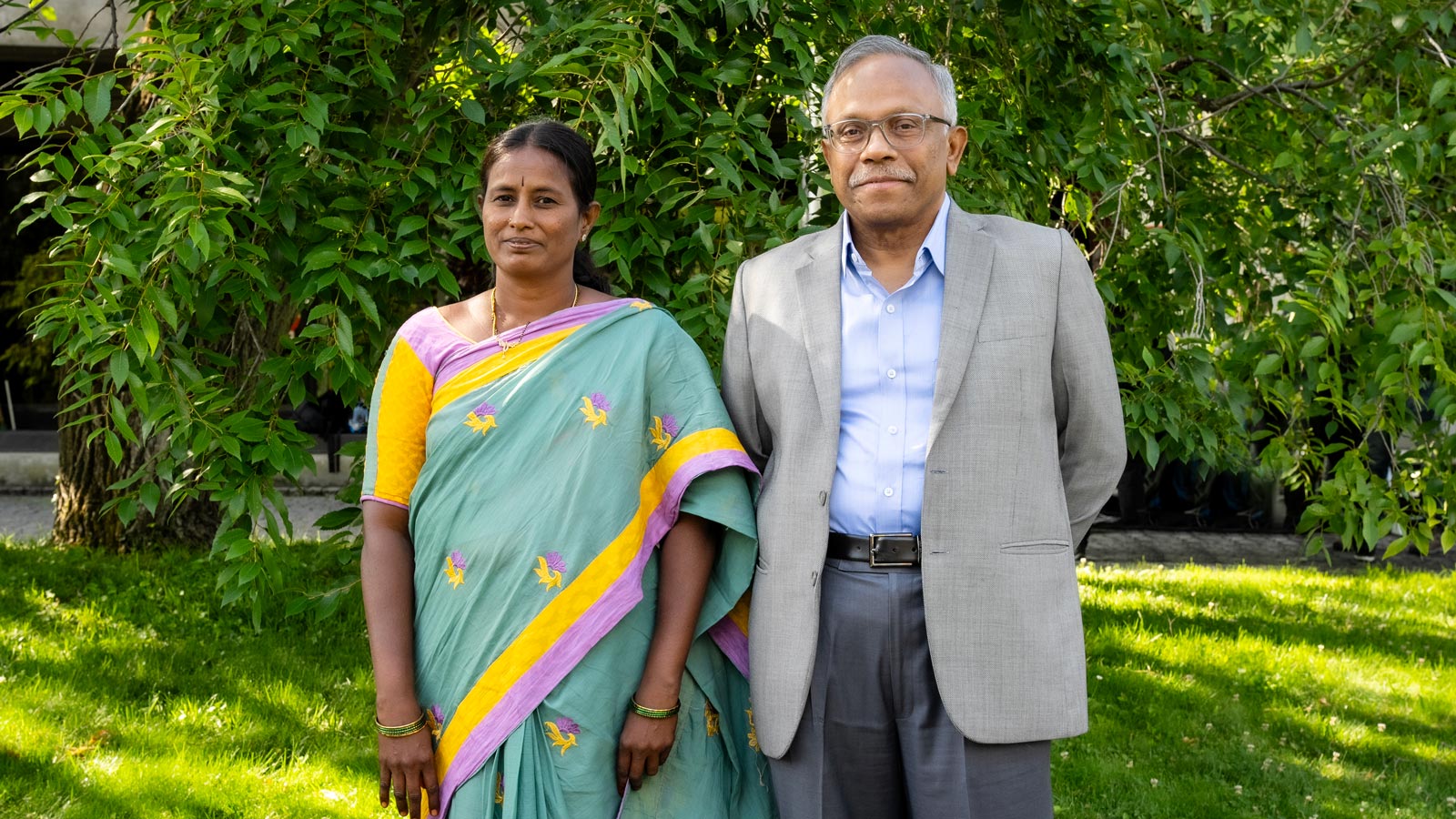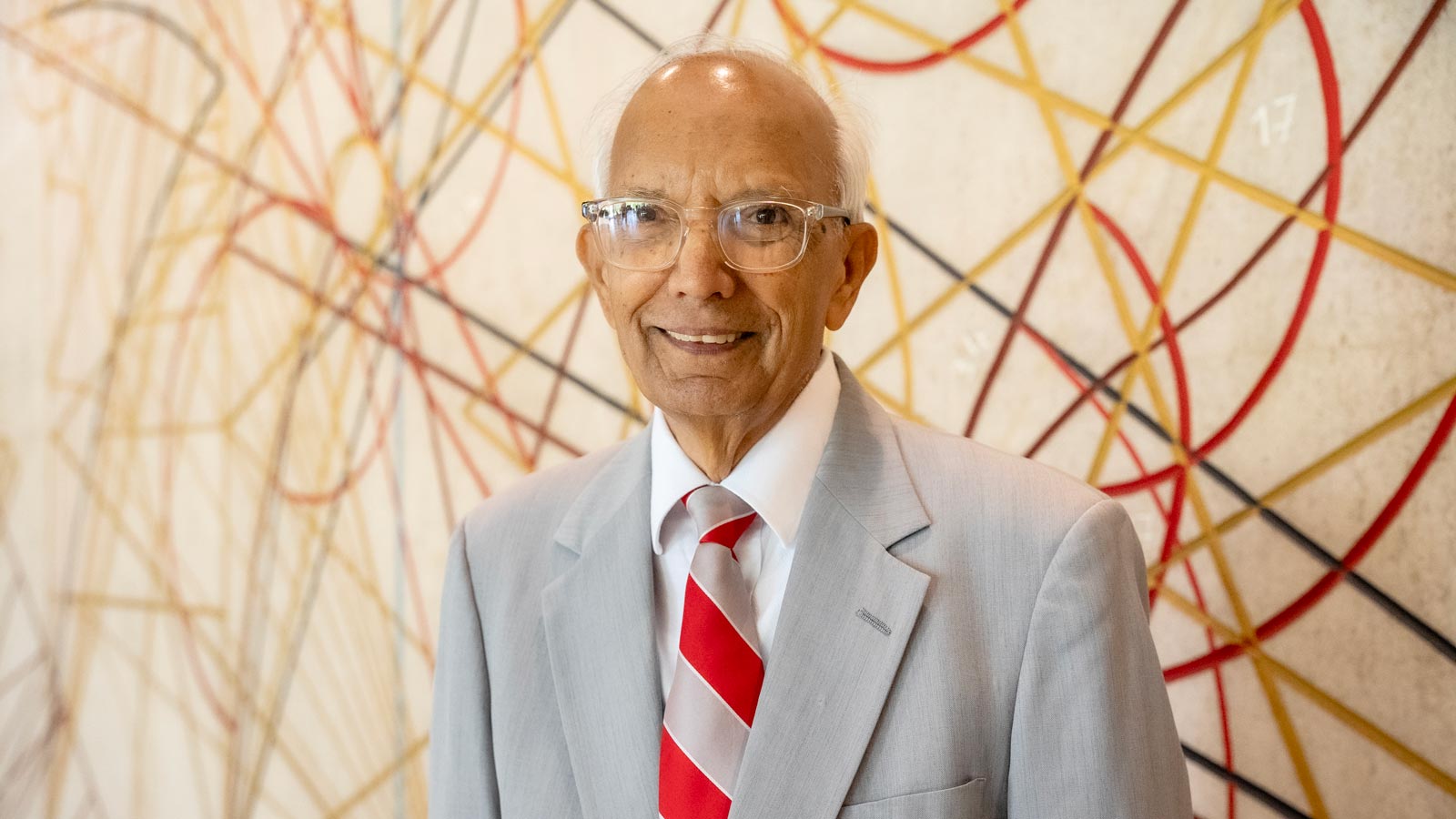11 July 2024. Lisbon City, Portugal. Gulbenkian Prize for Humanity 2024
The 2024 Gulbenkian Prize for Humanity received over 180 nominations from 117 nationalities in all five continents, more than ever before.
Andhra Pradesh Community Managed Natural Farming (India), Rattan Lal (USA/India) and SEKEM (Egypt) jointly receive the €1 million Prize for their sustainable agriculture work and contributions to food security, climate resilience and ecosystem protection.
The 1 million euro Gulbenkian Prize for Humanity recognises outstanding contributions to climate action and climate solutions that inspire hope. Any individual, organisation or group of people and/or organisations that are making a significant contribution to tackling climate change is eligible for the Prize.The Prize winner was selected by an independent Jury, composed of members with expertise in Earth system science, climate action, environmentalism and climate justice from scientific, technological, political and cultural realms. The independent jury was chaired by former German Chancellor Dr Angela Merkel.
APCNF (2023) NATURAL FARMING THROUGH A WIDE-ANGLE LENS. True Cost Accounting Study of Community Managed Natural Farming in Andhra Pradesh, India. # 215 pp.
harmonises food production with ecological preservation and climate change mitigation. His methodologies have highlighted on a global stage the interconnectedness of soil health and broader environmental and human wellbeing, and the importance of enhancing food security while conserving natural resources.
Development championing holistic approaches addressing societal challenges and climate change mitigation.
The 1 million euro Gulbenkian Prize for Humanity recognises outstanding contributions to climate action and climate solutions that inspire hope. Any individual, organisation or group of people and/or organisations that are making a significant contribution to tackling climate change is eligible for the Prize.The Prize winner was selected by an independent Jury, composed of members with expertise in Earth system science, climate action, environmentalism and climate justice from scientific, technological, political and cultural realms. The independent jury was chaired by former German Chancellor Dr Angela Merkel.
Since 2020, the Gulbenkian Prize for Humanity has awarded €4 million to people and organisations that have contributed significantly to the fight against climate change.
- Welcome remarks - António Feijó – President of the Calouste Gulbenkian Foundation
- Prize impact video
- President of the Jury speech and winner announcement Angela Merkel – President of the Jury of the Gulbenkian Prize for Humanity
- Winner’s film and acceptance speech
- President of the Republic speech - Marcelo Rebelo de Sousa – President of the Republic of Portugal
Climate Solutions for the Planet and People
12 July 2024. This conference presented the 2024 Gulbenkian Prize for Humanity winner and Jury members and explore solutions for a thriving and more resilient planet and society. Through panel discussions, films and presentations, participants will learn first-hand about the work of the 2024 winner and hear from experts in sustainability, climate action and ecosystem conservation.
See the recording here
Welcome speeches
- Martin Essayan – Executive Trustee
- Louisa Hooper – Director of the Sustainability Programme and the UK Branch, Calouste Gulbenkian Foundation
- Prize Winner’s Film
09:45 / Panel 1 Discussion between the Prize Winner and Jury members, with audience questions
- Miguel Bastos Araújo
- Sandra Díaz
- Hans Joachim Schellnhuber
- Miguel Arias Cañete
11:30 / Panel 2 Discussion between the Prize Winner and Jury members, with audience questions
- Sunita Narain
- Carlos Lopes
- Rik Leemans
- Runa Khan
Rythu Sadhikara Samstha (RySS)
Rythu Sadhikara Samstha (RySS) (‘Farmers Empowerment Cooperation’) has been nominated for the Gulbenkian Prize for Humanity 2024.
- Andhra Pradesh Community Managed Natural Farming (APCNF) launched by RySS, in coordination with the Department of Agriculture in 2016, is recognised as the world’s largest agroecology programme with over a million farmers. Natural farming is being practised in over 5,00,000 hectares in the State.
- The programme offers farmers increased yields, improved incomes and improved health benefits from the first season of transition.
- It has also generated environmental and social benefits including greater soil carbon sequestration, reversed land degradation, reduced soil temperatures, increased biodiversity.
- Its success relies on four levers: delivery through an established network of women collectives; farmer-to-farmer learning via ‘Champion Farmers’; progressive technology; and government ownership.
- The programme aims to reach all eight million farmer households in Andhra Pradesh over the next 10 years and inspire replication elsewhere.
- The model is already being incubated across 12 states in India, and in 2024 will be introduced in five other Global South countries, adapted to local contexts.
A high-level delegation from RySS and the Government of Andhra Pradesh attended the award ceremony.
Nagendramma Nettem of Sathya Sai district is the champion farmer of APCNF. She highlighted the role of women in the success of APCNF at the Lisbon event. She has taken up the task of promoting awareness on natural farming, while leading a group of 20 women farmers. The 38-year-old hails from Ghantapuram village and she is a mother of two daughters. Her journey into natural farming started when her 7-year-old daughter was diagnosed with vision deficiency, and doctors advised her to increase the girl’s green leafy vegetable intake.During that time a few community resource persons visited their village and briefed them about the natural farming model. Having learnt about its benefits, Nagendramma, a BA graduate, adopted natural farming and raised crops in 800 square metre plot, and within a short time she started witnessing the nutritional benefits of chemical-free food.
“Buoyed by the good results, I decided to become a full-time farmer, which I never imagined. In the first crop harvest, the yield was much higher than the chemical farming method, and the food had better taste and quality.”
See interview with Vijay Kumar Thallam:
https://www.linkedin.com/posts/agroecology-coalition_agroecology-activity-7217514011813154819-MO9d?utm_source=share&utm_medium=member_android
See report:
APCNF (2023) NATURAL FARMING THROUGH A WIDE-ANGLE LENS. True Cost Accounting Study of Community Managed Natural Farming in Andhra Pradesh, India. # 215 pp.
- This pioneering new study, brings to light the remarkable potential of agroecological natural farming. Conducted by GIST Impact in collaboration with the Global Alliance for the Future of Food, this first-of-its-kind research provides compelling evidence supporting agroecological natural farming as a transformative approach to nourishing communities and empowering farmers.
- Using True Cost Accounting methods, the study compared the economic, social, and health impacts of different farming systems in the Indian State of Andhra Pradesh. The findings challenge the prevailing belief that chemically-intensive farming is necessary to meet the food production demands of a growing population. The study demonstrates that farms utilizing natural inputs achieved equal or higher yields compared to other systems, with an average increase of 11% while maintaining greater crop diversity.
Rattan Lal (USA/India)
Professor Rattan Lal is a globally renowned soil scientist. He pioneered a soil-centric approach thatharmonises food production with ecological preservation and climate change mitigation. His methodologies have highlighted on a global stage the interconnectedness of soil health and broader environmental and human wellbeing, and the importance of enhancing food security while conserving natural resources.
- By promoting research and education in sustainable soil management, Dr. Lal has advanced understanding of sustainable agriculture and climate resilience. In 2024, Dr. Lal was ranked the most cited plant science and agronomy scientist in the world.
- He has been distinguished through many global awards, including the Japan Prize in 2019, the World Food Prize in 2020, the Padma Shri award in 2021, and the Plant Science and Agronomy Leader Award in 2024.
- His personal journey from refugee to Distinguished University Professor at The Ohio State University and the founder of the university’s Carbon Management & Sequestration Center exemplifies the power of resilience and intellectual pursuit.
SEKEM (Egypt)
SEKEM is a conglomerate of NGOs, businesses and the Heliopolis University for SustainableDevelopment championing holistic approaches addressing societal challenges and climate change mitigation.
- Established almost 50 years ago in a desert region, SEKEM’s inception is rooted in biodynamic farming – rejuvenating arid land and local society.
- Its food and agriculture work scales up regenerative practices and highlights the co-benefits of nature-based solutions for land and communities.
- 30 years ago, SEKEM co-founded the Egyptian Biodynamic Association (EBDA) – an independent association that developed the Economy of Love Standard, which is highly inspired by the SEKEM vision.
- Both SEKEM and EBDA are focused on scaling biodynamic agriculture, promoting a holistic transformation of farming communities.
- Through the Economy of Love Standard, SEKEM and the EBDA are enabling farmers to transition from conventional to a more profitable biodynamic, regenerative farming model while supporting community development. To date, it has supported over 10,000 farmers and converted over 40,000 acres of land.







No comments:
Post a Comment